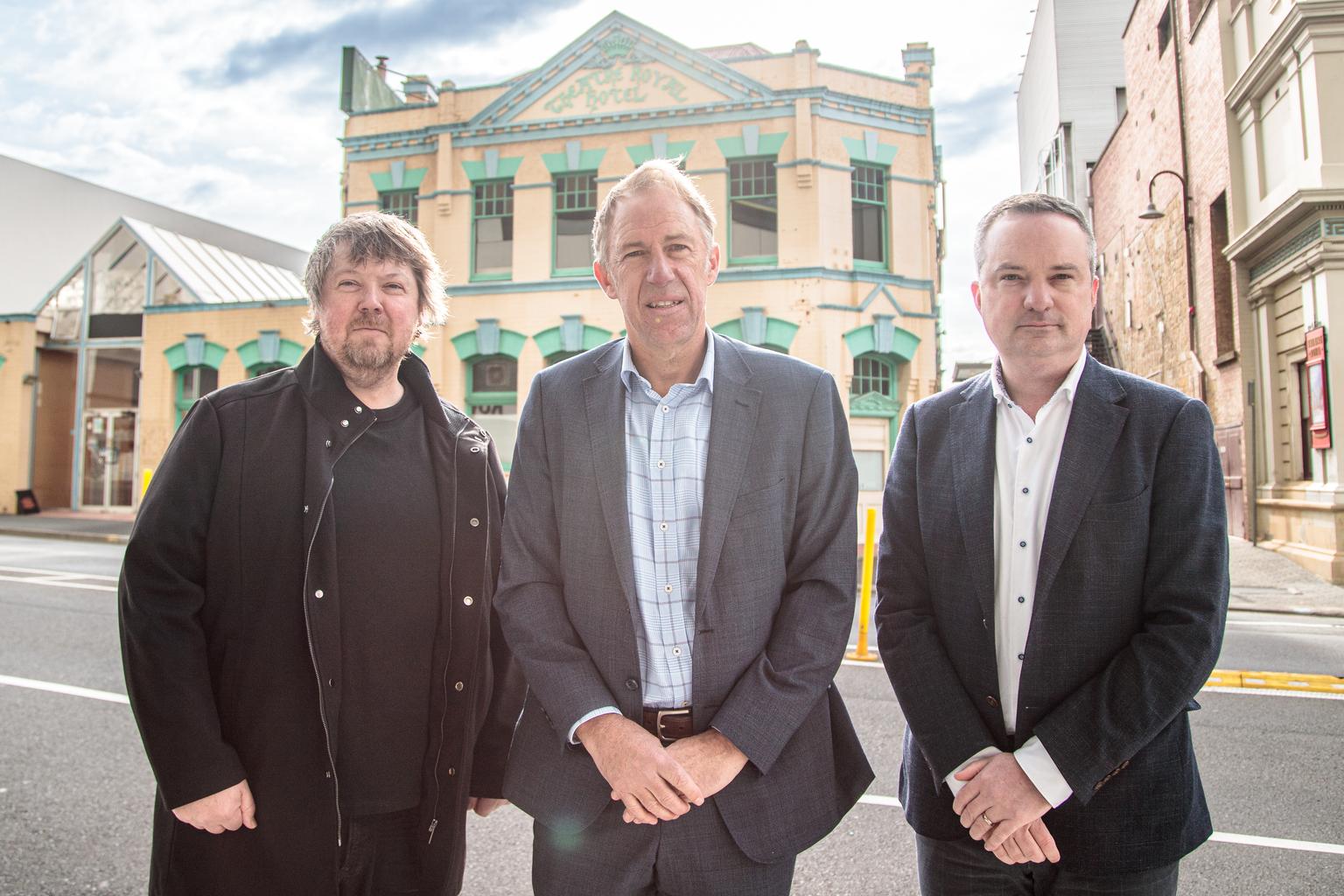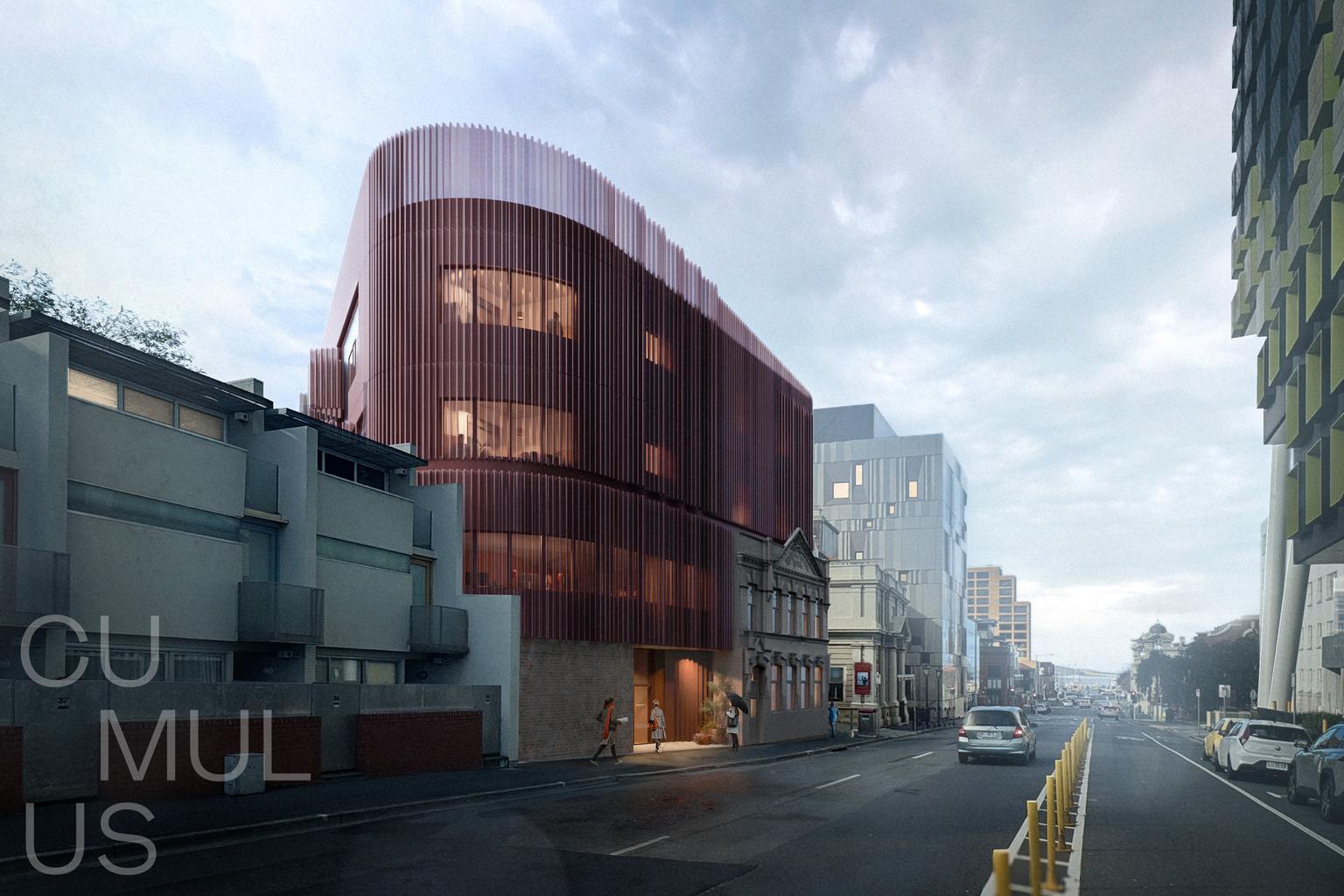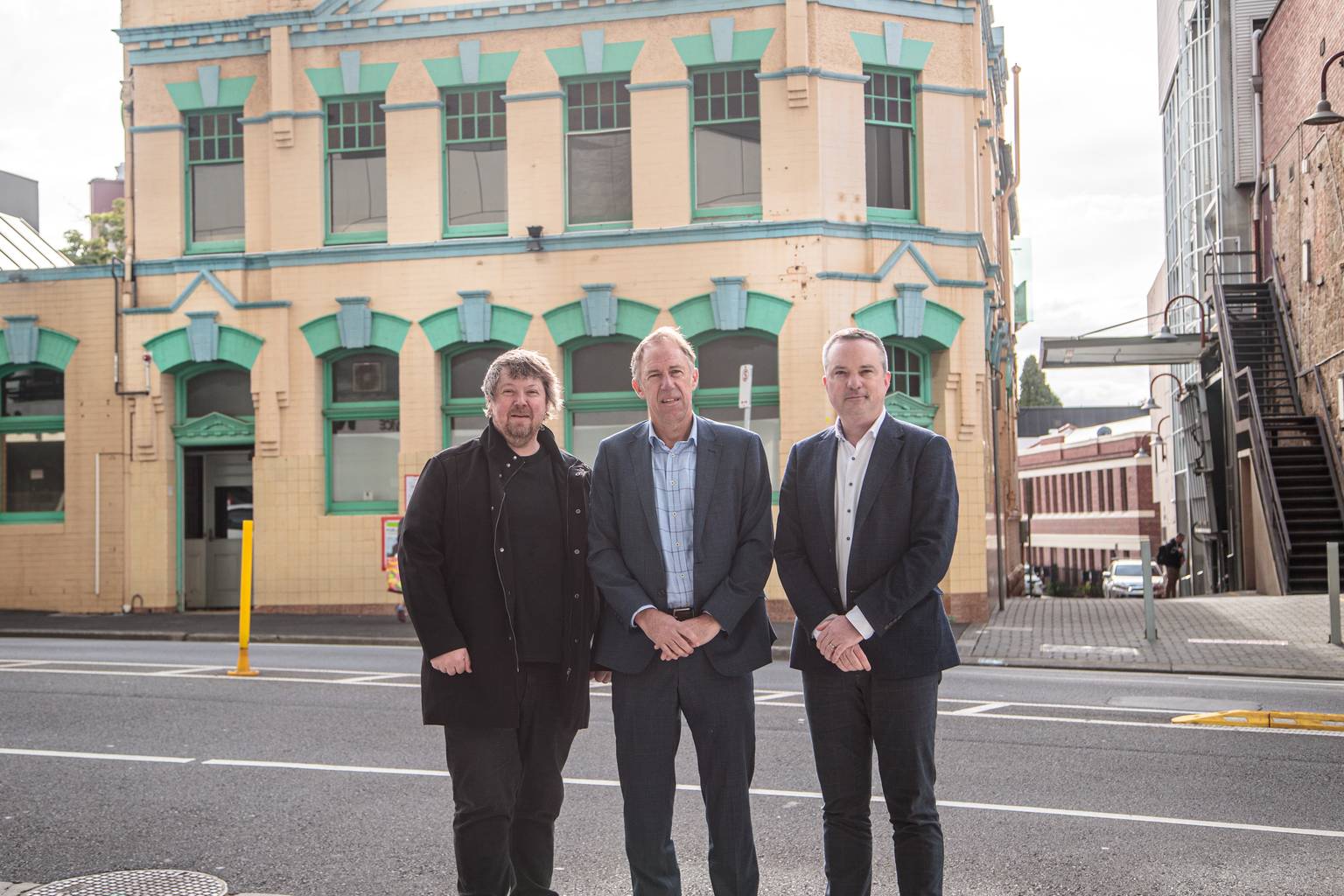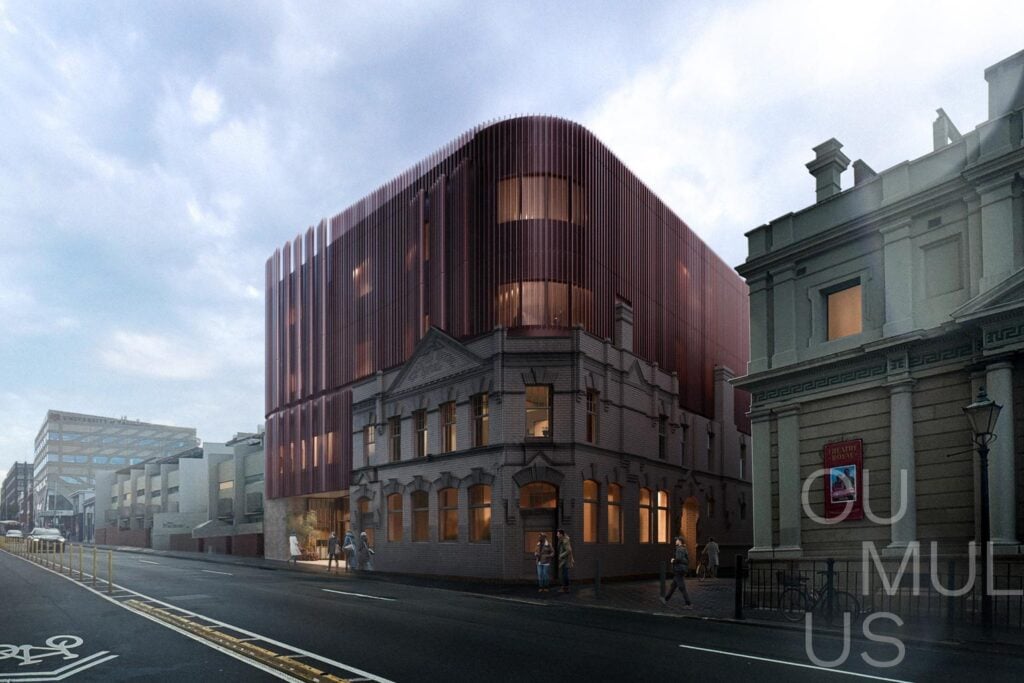Plans for a $24 million wellness centre for cancer patients that promises to transform support for Tasmanians battling the disease have been lodged with the Hobart City Council.
The SHE Cancer Wellness Centre will take over the University of Tasmania-owned, heritage-listed former Theatre Royal Hotel, located across the road from the Royal Hobart Hospital.
SHE chair Scott Harris said the centre will provide everything from short-term accommodation to psychological support for patients and their families.
For him, the project represents the culmination of a deeply personal mission that began while caring for his late wife during her cancer treatment.

“The building itself is a sanctuary for cancer patients when they’re going through incredibly tough times,” Harris said.
“[It will] have a whole range of services that can make their life a bit more bearable in their toughest times.”

The idea was cemented during treatment sessions when Harris observed a woman from Tasmania’s north-west coast travelling by bus for treatment, with nowhere to go between medical appointments.
“I thought to myself, where is she going to go between those meetings? There is nowhere for her just to be able to go and sit, have a coffee, just relax and maybe just talk to other people,” he said.
The centre addresses this gap with self-contained accommodation units, family breakout spaces, educational facilities and navigation services to help patients decode complex medical terminology.
University of Tasmania Professor Vice-Chancellor Nicholas Farrelly said their partnership with SHE will be transformative for the state’s health landscape.

“For families across Tasmania to have a facility that’s been built with such care and affection that will allow people going through some of the toughest moments in their lives to get life-saving support right here … is simply outstanding,” he said.
“And as a university, we’re doing what we can to support this overall effort and to make it happen.”

Local firm Cumulus Studio has designed the facility using biophilic principles, incorporating natural materials and maximising connection to the outdoors to promote healing.
“It’s one where architecture can make a really meaningful difference, not only to the community as a whole, but to the lives of individuals who are going through a really hard time,” Cumulus founder Peter Walker said.
The state government has committed $10 million to the project, with developers pursuing philanthropic donations and federal funding to bridge the remaining gap.
Subject to council approval, the wellness centre is expected to open in 2027.








